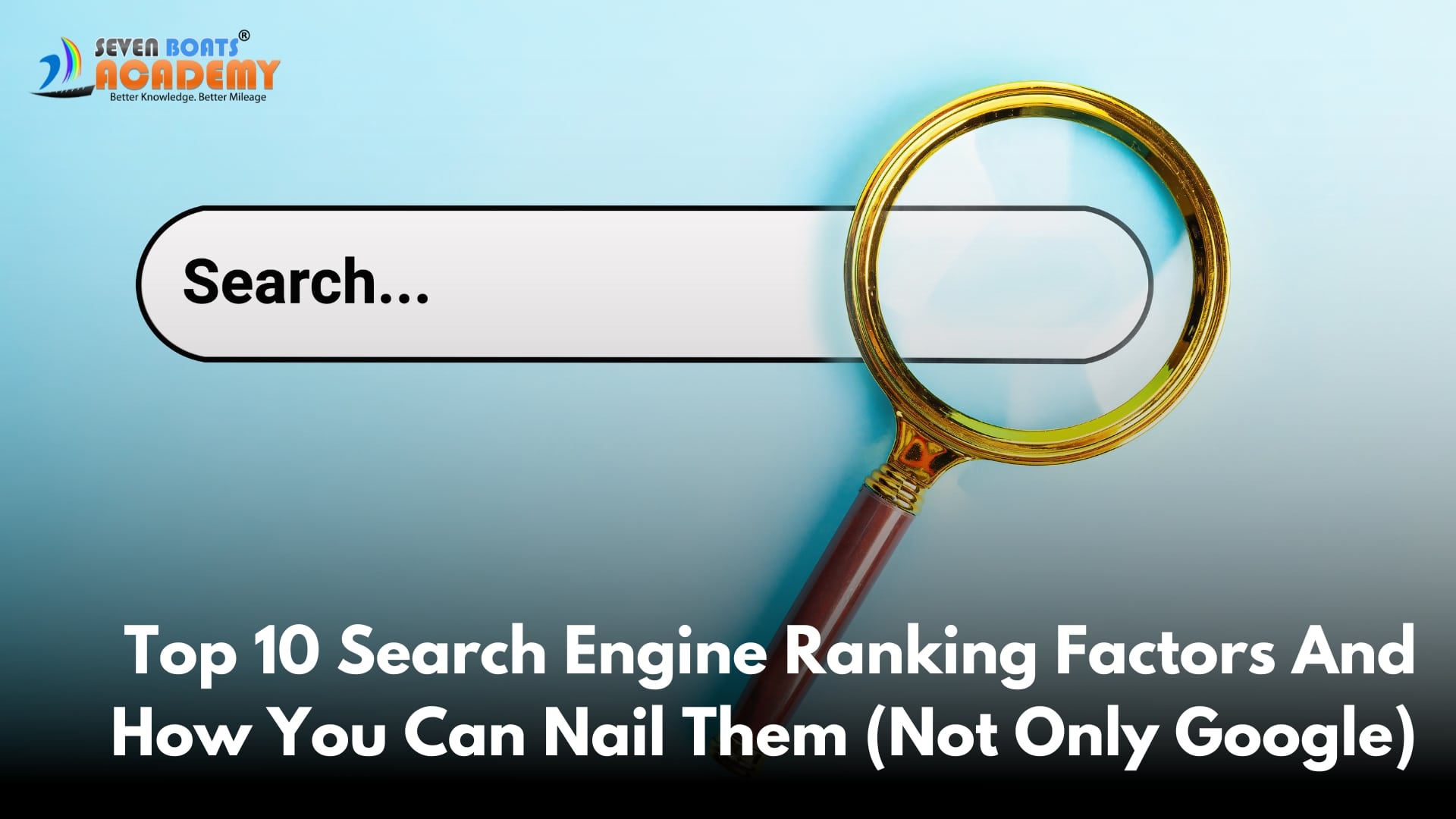
If you’re in the world of websites, blogging, or online business, you’ve probably heard about the importance of search engines. But here’s the thing: it’s not just about Google anymore. While it’s the big boss, other search engines like Bing, Yahoo, DuckDuckGo, and even YouTube (yes, it’s technically a search engine) also play significant roles. Ranking on any of these platforms can massively boost your visibility and traffic.
So, how do you make sure your site or content ranks high? The answer lies in understanding the ranking factors search engines use. And no, it’s not rocket science—you can totally do this! Let’s dive into the top 10 search engine ranking factors and how you can master them.
What Is Search Intent and Why Is It a Big Deal?
Search intent is like the secret sauce of SEO. It’s all about figuring out what someone really wants when they type something into a search bar. Are they looking for answers? Shopping? Watching cat videos?
How to Nail It
- Read the Room: Look at the search results for your target keywords. If you’re seeing a lot of “how-to” articles, users probably want informational content.
- Match the Intent: Create content that aligns with what’s already ranking but make it better. Add unique insights, visuals, or updates.
- Use Tools: Tools like AnswerThePublic or SEMRush can help you decode search intent and find related queries.
Why Does Content Quality Matter So Much?
Good content isn’t just king—it’s the whole royal court. Search engines prioritize content that’s useful, engaging, and relevant. It’s not about stuffing keywords; it’s about offering value.
How to Nail It
- Go Deep: Cover topics thoroughly. Aim for 1,000+ words for blogs, but only if it adds value.
- Keep It Fresh: Update old content regularly to keep it relevant.
- Make It User-Friendly: Use subheadings (like these!), bullet points, and visuals to make your content easy to read.
What Role Do Keywords Still Play in 2024?
Keywords are still the bread and butter of SEO. But it’s not the old-school game of spamming them everywhere. Modern search engines focus on context and relevance.
How to Nail It
- Focus on Long-Tail Keywords: These are specific phrases people search for, like “best running shoes for flat feet.”
- Use LSI Keywords: Latent Semantic Indexing (LSI) keywords are terms related to your main keyword. Tools like LSIGraph can help you find them.
- Place Them Smartly: Use keywords in your title, headings, URL, and naturally within your content.
Who Cares About Mobile-Friendliness? (Spoiler: Everyone)
More than half of web traffic comes from mobile devices, so search engines heavily prioritize mobile-friendly sites. If your site isn’t optimized for mobile, you’re missing out.
How to Nail It
- Test Your Site: Use Google’s Mobile-Friendly Test to see how your site performs.
- Choose Responsive Design: Make sure your site adjusts seamlessly across devices.
- Speed It Up: Mobile users won’t wait for slow-loading pages. Use tools like GTmetrix or PageSpeed Insights to optimize loading times.
When Does Page Speed Become a Dealbreaker?
People hate waiting, and so do search engines. A slow site not only frustrates users but also gets penalized in rankings.
How to Nail It
- Compress Images: Use tools like TinyPNG to reduce image file sizes.
- Enable Caching: Caching helps browsers load your site faster. Most hosting providers or plugins can do this.
- Use a CDN: A Content Delivery Network (CDN) speeds up content delivery, especially for global audiences.
What’s Up With Backlinks and Authority?
Backlinks are like digital votes of confidence. When other reputable sites link to your content, it tells search engines you’re trustworthy and relevant.
How to Nail It
- Create Link-Worthy Content: Make stuff people want to share—think guides, infographics, or original research.
- Reach Out: Email site owners or bloggers who might find your content valuable.
- Avoid Spammy Links: Quality over quantity. A few links from respected sites beat dozens from shady ones.
How Does User Experience (UX) Influence Rankings?
User experience is everything. If your site is hard to navigate, cluttered, or just plain ugly, users will bounce—and search engines notice.
How to Nail It
- Simplify Navigation: Make it easy for visitors to find what they’re looking for.
- Improve Readability: Use clear fonts, short paragraphs, and contrasting colors.
- Reduce Pop-Ups: Nobody likes being bombarded with pop-ups. Keep them minimal and non-intrusive.
Why Are Meta Tags and Descriptions Still Relevant?
Meta tags and descriptions don’t directly affect rankings, but they impact click-through rates (CTR), which can indirectly help.
How to Nail It
- Write Catchy Titles: Include your keyword and make it irresistible.
- Craft Descriptions: Use 155-160 characters to summarize your content and include a call-to-action (CTA).
- Avoid Duplication: Each page should have unique meta tags.
What’s the Deal With Local SEO?
If you’re a local business, ignoring local SEO is like leaving money on the table. Search engines prioritize results based on location for many queries.
How to Nail It
- Claim Your Listings: Register your business on Google My Business, Bing Places, and Yelp.
- Get Reviews: Positive reviews boost your credibility and rankings.
- Use Local Keywords: Include location-based keywords in your content, like “best pizza in Chicago.”
How Do Social Signals Impact SEO?
While not a direct ranking factor, social signals (shares, likes, comments) show search engines that people find your content valuable.
How to Nail It
- Be Active: Share your content on platforms where your audience hangs out.
- Encourage Sharing: Add share buttons to your blog posts or pages.
- Engage: Respond to comments and participate in discussions to build community and visibility.
Final Thoughts
Mastering these ranking factors isn’t an overnight thing—it takes effort, experimentation, and consistency. The key is to focus on your audience first and let SEO enhance their experience. Whether you’re targeting Google, Bing, or a niche platform like YouTube, the principles are similar: create value, stay relevant, and optimize smartly.



0 responses on "Top 10 Search Engine Ranking Factors And How You Can Nail Them (Not Only Google)"